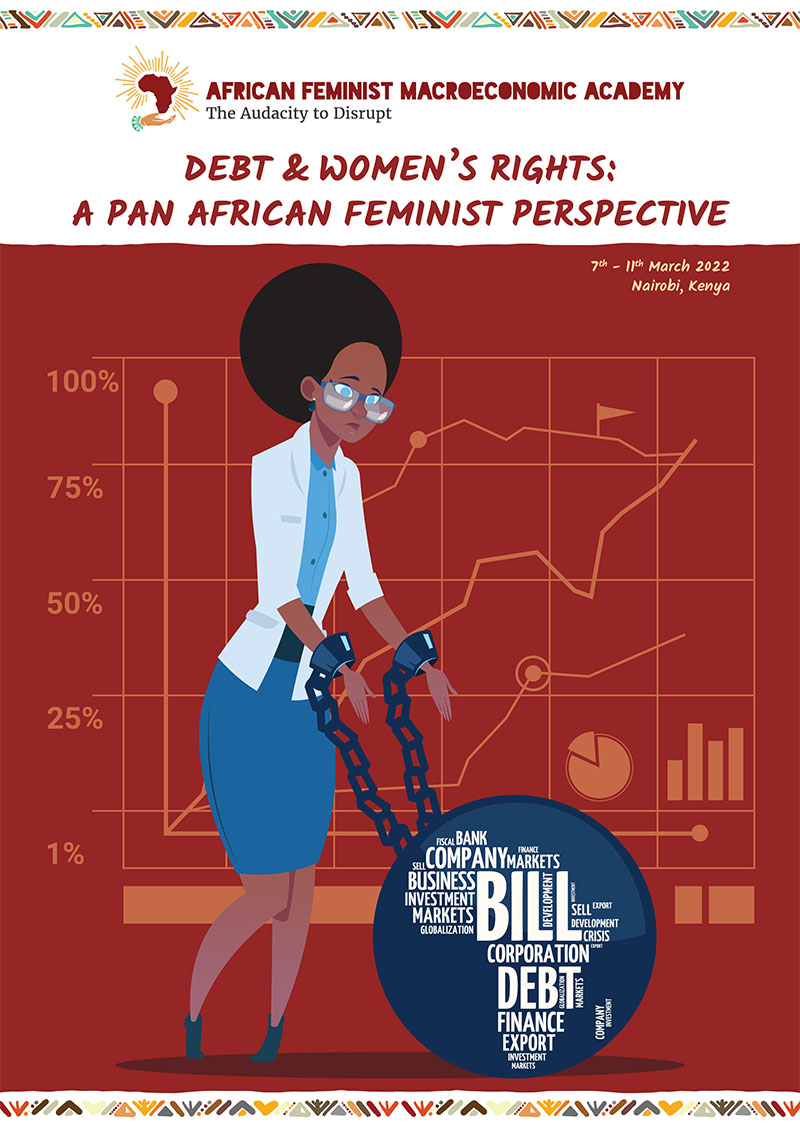
Debt & Women’s Rights: A Pan African Feminist Perspective
Since 2017, The African Women’s Development and Communication Network (FEMNET) has been deepening knowledge and enhancing capacities and skills for a cohort of women, leading and driving initiatives around economic justice advocacy. This has resulted in having a handful of passionate feminists and gender advocates engaging and influencing macroeconomic policies and frameworks from a feminist perspective.
Every year’s AFMA is expected to result in:
i. A cohort of African women feminist economists, activists with stronger macroeconomics feminist analysis skills.
ii. A broader knowledge base on gender and macroeconomics.
iii. Strategic advocacy campaigns shaping discourse on issues such as the impact of illicit financial flows, decent work, and ‘informalized’ lives of women in economies, among others.
Guided by a theme, each AFMA incorporates “deep dive” sessions on selected macroeconomic topics that are relevant and pressing to the African context. The 2022 AFMA theme: Gendered Consequences of Africa’s Debt Crisis. The African Debt crisis has been accelerated by the onset of the Covid-19 global health pandemic. And while many developing countries were already facing a fiscal crisis before the pandemic (37 African countries are in some form of debt distress ranging from moderate to being in distress as of June 2021), the nature of developing country debt is far more complex than in the past, with a new landscape that poses more risks. An increasing share is now composed of commercial bonds traded on international capital markets.
This year’s AFMA introduced participants to the ‘Gendered Consequences of Africa’s Debt Crisis’ as it is particularly difficult for African governments to fulfil their pledges to gender equality and the advancement of women’s rights because of the burden they bear in repaying public debt. A large percentage of the burden of this debt is placed on women’s shoulders, yet the money lent seldom goes toward supporting women’s rights. The academy will work towards increasing the understanding of participants around macroeconomic policies including debt policies, which are designed with little or no regard for the realization of women’s rights.
35 African feminist activists and movement leaders were drawn from Eastern African organizations, movements, and formations that are pushing for women’s economic justice and working in various sectors such as agriculture, informal trade, natural resource extraction, sexual reproductive rights, violence against women, economic justice, trade unions, women with disability, young women among others.
